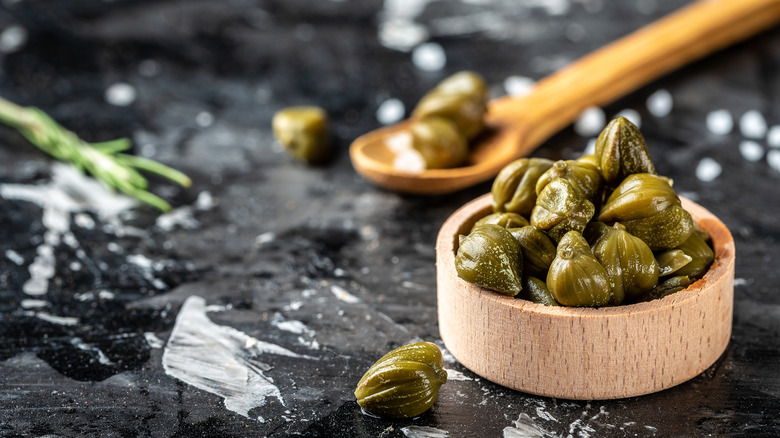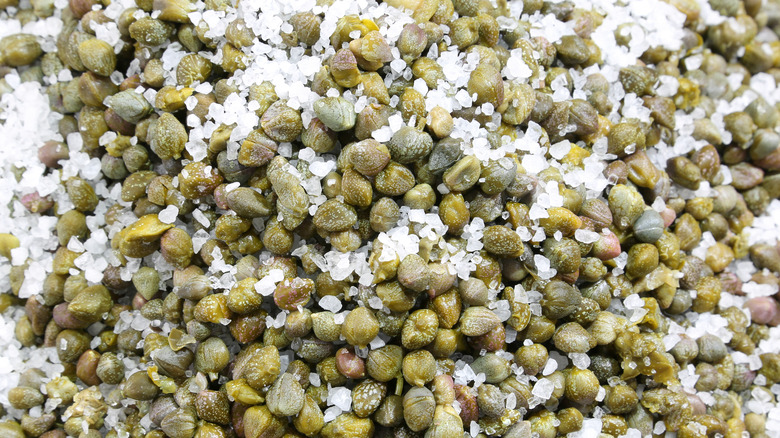Why You Should Rinse Capers Before Cooking With Them
Tiny capers would be easy to overlook in a dish, were it not for the briny pop they add that's much larger than their size would suggest. The Wisconsin Horticulture Extension of the University of Wisconsin-Madison explains that capers are the handpicked, unopened flower buds of Capparis spinosa, or the caper bush, which is native to the Mediterranean. These flower buds — about the size of a single kernel of corn — are carefully harvested in the morning and are preserved by being pickled or brined.
Capers are sorted by size, and it is the smallest, called nonpareil, that are typically considered the very best. If the flower buds are left alone and allowed to mature, they bloom and turn into fruits called caper berries. Caper berries are full of tiny seeds and are typically pickled or brined as well. Caper berries look similar to green olives and can be a delicious and unusual addition to an antipasto appetizer plate.
Why should you rinse capers before cooking with them?
Capers are usually brined in vinegar or packed in salt and should be rinsed to remove some of the salt otherwise your dish may be overseasoned. If you're planning to prepare a chicken piccata, for example, you should rinse your capers if they've been brined. If they've been packed in salt, you should soak them in cool water for about 15 minutes, changing the water a couple of times.
Likewise, if you're preparing our spectacular spring vegetable side dish of roasted fiddlehead ferns with Meyer lemon and capers, you should rinse the capers to remove excess salt. Capers add a delightful textural element to dishes, with a salty tang and satisfying pop of flavor. They also introduce some herbal and citrus notes that can brighten any dish you add them to. Just ensure you remove the salt from the caper brine and check the seasoning of your dish to ensure it's not too salty.

